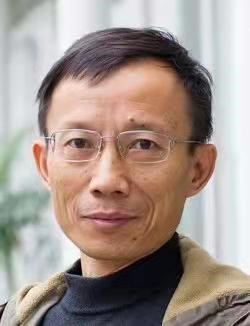报告时间:12月11日(星期五)16:00
报告地点:信息楼99905银河官方网310报告厅
腾讯会议(会议ID:417 495 739)
报 告 人:陈杰,香港城市大学(City University of Hong Kong)教授
报告题目:From Bode to Shannon: Fundamental Limitations and Limits of Feedback Revisited in an Information Age
内容简介:Bode integral relations and Shannon capacity theorems are pillars of feedback and information theories, and they laid the very foundation for the design of control systems and communication systems, respectively. As today’s technological world is increasingly more information-rich and performance-driven, there has been growing recognition that control and communication, the two cornerstones of modern technologies, may and should be integrated ever more closely, and that the design of new engineering systems and networks can benefit from the fusion of control and communication theories. Relating to my own experiences and viewpoints, in this talk I shall present a control theorist’s perspective into this intriguing area of scientific inquiry, from the early triumph of feedback theory to the latest development in networked control. The talk will commence with a summary tutorial of the classical and contemporary results in control performance limitation studies, discussing a number of selected problems and results central to the subject including Bode's classical integral relations and their multivariable extensions. This will then usher in the more recent advances, of which a number of canonical optimal control problems and the latest developments in networked control will constitute the primary issues of interest, with the latter focused on the intrinsic limits imposed by communication channels on feedback performance. A central and unifying theme throughout the talk is the fundamental limitations of control, under perfect or limited information feedback.
报告人简介:Jie Chen is a Chair Professor in the Department of Electronic Engineering, City University of Hong Kong, Hong Kong, China. He received the B.S. degree in aerospace engineering from Northwestern Polytechnic University, Xian, China in 1982, the M.S.E. degree in electrical engineering, the M.A. degree in mathematics, and the Ph.D. degree in electrical engineering, all from The University of Michigan, Ann Arbor, Michigan, in 1985, 1987, and 1990, respectively.
Prior to joining City University, he was with School of Aerospace Engineering and School of Electrical and Computer Engineering, Georgia Institute of Technology, Atlanta, Georgia from 1990 to 1993, and with University of California, Riverside, California from 1994 to 2014, where he was a Professor and served as Professor and Chair for the Department of Electrical Engineering. His main research interests are in the areas of linear multivariable systems theory, system identification, robust control, optimization, time-delay systems, networked control, and multi-agent systems. He is the author of several books, on subjects ranging from system identification to time delay systems, and to information-theoretic control and fundamental control limitations.
An elected Fellow of IEEE, Fellow of AAAS, Fellow of IFAC and a Yangtze Scholar/Chair Professor of China, Dr. Chen was a recipient of 1996 US National Science Foundation CAREER Award, 2004 SICE International Award, and 2006 Natural Science Foundation of China Outstanding Overseas Young Scholar Award. He was an IEEE Control Systems Society (CSS) Distinguished Lecturer and served on the IEEE CSS Board of Governors and as the IEEE CSS Chapter Activities Chair. He also served on a number of journal editorial boards, as an Associate Editor and a Guest Editor for the IEEE Transactions on Automatic Control, a Guest Editor for IEEE Control Systems Magazine, an Associate Editor for Automatica, and the founding Editor-in-Chief for Journal of Control Science and Engineering. He presently serves as an Associate Editor for SIAM Journal on Control and Optimization, and for International Journal of Robust and Nonlinear Control. Moreover, he routinely serves on program and organizing committees of international conferences, most recently as the General Chair of the 2019 IEEE Conference on Control Technology and Applications.

